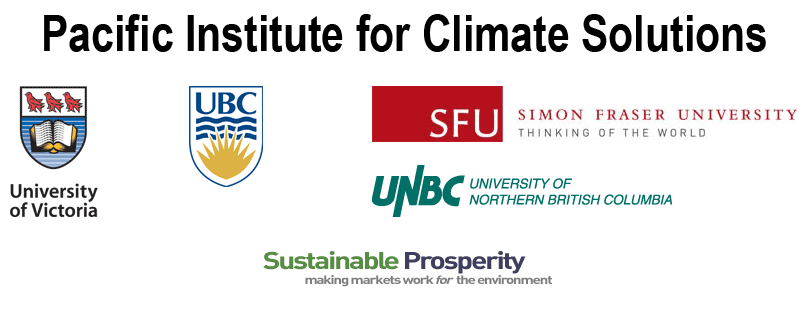Carbon Pricing Forum Asks - Is "BC's Experiment" Working?

British Columbia gained worldwide acclaim for introducing its far-reaching and controversial carbon tax last year, but is it proving an effective tool for helping to combat human-caused climate change? What are the realities of BC’s carbon pricing for BC businesses and households? And what does the path ahead need to be?
These issues and others will be debated and explored at the first forum to be hosted by the Pacific Institute for Climate Solutions (PICS) and Sustainable Prosperity from June 8 to 10, 2009 at the Morris J. Wosk Centre for Dialogue in downtown Vancouver.
Forum speakers—representing a wide cross-section of carbon pricing experts and policy makers from government and the business, academic, and NGO communities—will come together during the three-day forum to share their experiences and insights.
The first full day of the forum (Tuesday, June 9) will focus on the experience to date with carbon pricing in BC. Despite the worldwide recognition the policy received, within BC and Canada the carbon tax has been politically controversial and questioned on the basis of social and regional equity, and its effectiveness in reducing emissions. Are these concerns justified, and what changes are BC companies and institutions making in response to the tax?
Tuesday’s speakers grappling with those issues include representatives from BC’s ministries of Finance, and Energy, Mines and Petroleum Resources; energy consultants MK Jaccard Research and Associates; NexTerra Energy Corporation; the Vancouver Coastal Health Authority; Terasen Gas; Novex Couriers; the Canadian Centre for Policy Alternatives; municipal governments; and the four stakeholder universities of PICS. The keynote speaker is a climate and energy consultant, and former North American director for The Climate Group, Chris Walker.
Wednesday’s sessions look to the path ahead. Topics include the challenges in linking BC’s policy to emerging national and international initiatives, especially the potential for a North American cap and trade system; what the emerging suite of US climate and energy policy legislation will mean for the BC climate policy and the economy; and how to get more Canadians involved with climate change issues. Speakers include representatives from the Business Council of British Columbia; the Stockholm Environment Institute – US; Bennett Jones LLP; Habitat Enterprises; Environics; Viewpoint Learning; and municipal governments.
A free public panel discussion on “The Future of Carbon Pricing: Implications of the BC Election” will also be held as part of the forum on Tuesday, June 9 at 7:30 pm in the Pavilion Ballroom at the Sheraton Vancouver Wall Centre. Everyone is welcome to attend.
Note to editors: In addition to the free public discussion panel, media are welcome to sit in on any of the forum presentations. For the complete forum agenda and information on the panel discussion, visit pics.uvic.ca or click on the following direct links: http://pics.uvic.ca/assets/pdf/DecodingCarbonPricing.pdf
http://pics.uvic.ca/assets/pdf/TheFutureofCarbonPricing.pdf
PICS is hosted and led by the University of Victoria in collaboration with the University of British Columbia, Simon Fraser University and the University of Northern British Columbia. PICS was created in 2008 by the provincial government to: increase understanding of the magnitude and patterns of climate change; evaluate its physical, economic, and social implications; assess options and develop solutions; and communicate climate change issues to government, industry and the general public.
The forum co-sponsor, Sustainable Prosperity, is a new policy research centre that aims to build a healthy environment and economy.
-- 30 --
Photos
There are no images in this gallery.
